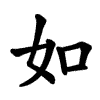Definify.com
Definition 2026
天
天
| ||||||
|---|---|---|---|---|---|---|
Translingual
| Stroke order | |||
|---|---|---|---|

| |||
Han character
天 (radical 37 大+1, 4 strokes, cangjie input 一大 (MK), four-corner 10430, composition ⿱一大)
Descendants
References
- KangXi: page 248, character 4
- Dai Kanwa Jiten: character 5833
- Dae Jaweon: page 500, character 2
- Hanyu Da Zidian: volume 1, page 522, character 1
- Unihan data for U+5929
Chinese
|
simp. and trad. |
天 | |
|---|---|---|
| alt. forms |
𠀘 𠀡 |
|


Glyph origin
| Historical forms of the character 天
| ||||
|---|---|---|---|---|
| Oracle bone script | Bronze inscriptions | Bamboo and silk script | Large seal script | Small seal script |
 |
 |
 |
 |
 |
| Characters in the same phonetic series (天) (Zhengzhang, 2003) | |
|---|---|
| Old Chinese | |
| 添 | *tʰiːm |
| 忝 | *l̥ʰiːmʔ, *l̥ʰiːms |
| 悿 | *tʰiːmʔ |
| 舔 | *l̥ʰiːmʔ |
| 菾 | *diːm |
| 天 | *qʰl'iːn |
| 吞 | *qʰl'iːn, *qʰl'ɯːn |
| 祆 | *qʰliːn |
| 蚕 | *zluːm, *hl'iːnʔ |
A top line representing the level above a man with outstretched arms (大 (dà)). Ancient representation of the character show a man with a large head, an anthropomorphic representation of heaven.
Original meaning of the word is "sky". Such concept is difficult to depict with a pictogram, hence the current form. Influenced by the glyph, the character was frequently glossed in Old Chinese documents with 顛 (“crown of the head”), and such had led to incorrect hypotheses which regarded 天 as a derivation of 顛 or 巔, "top (of the head/hill)".
Graphical opposite of 立 (lì).
Etymology
This character was previously reconstructed to have a *tʰ-initial in Old Chinese, but this hypothesis has been largely discounted in recent reconstructions, in light of evidence from early Chinese accounts of dialectal pronunciations, transcription of other languages, as well as cognate/derived characters within Chinese, which has all pointed to a voiceless resonant initial *l̥- in Old Chinese. The book Shiming showed that, by c. 200 CE, this initial had already produced dialectal variation in the pronunciation: People in central-western China pronounced it with the back of the tongue, like 顯 [*xˤenʔ], while people in eastern China pronounced it with the tip of the tongue, like 坦 [*tʰˤanʔ]. An old northwestern dialect variant survives as 祆 (xiān, “God of the Zoroastrians”) [xen], and the word 天竺 (Tiānzhú, “India”) was used to transcribe Old Persian *Hind-uka ("India").
Further etymology is unknown. While it was reconstructed with a /*tʰ-/ initial, it was frequently compared with tengri, the name for God in early Turkic and Mongolic peoples' languages. This now appears unlikely. The only certain external cognate is the Central Bai (a language closely related to Chinese) word heinl (“sky, heaven”) [xẽ⁵⁵].
Pronunciation
- Mandarin
- Cantonese (Jyutping): tin1
- Hakka (Sixian, PFS): thiên
- Min Dong (BUC): tiĕng
- Min Nan (POJ): thiⁿ / thian
- Wu (Wiktionary): thi (T1)
- Xiang (Wiktionary): tienn1
- Mandarin
- (Standard Chinese, Beijing)+
- Pinyin:
- Zhuyin: ㄊㄧㄢ
- Wade-Giles: t'ien1
- Gwoyeu Romatzyh: tian
- IPA (key): /tʰi̯ɛn⁵⁵/
-

- (Standard Chinese, Beijing, erhua-ed)+
- Pinyin:
- Zhuyin: ㄊㄧㄢㄦ
- Wade-Giles: t'ianrh1
- Gwoyeu Romatzyh: tial
- IPA (key): /tʰjɑɻ⁵⁵/
- (Standard Chinese, Beijing)+
- Cantonese
- (Standard Cantonese, Guangzhou)+
- Jyutping: tin1
- Yale: tīn
- Cantonese Pinyin: tin1
- IPA (key): /tʰiːn⁵⁵/
- (Standard Cantonese, Guangzhou)+
- Hakka
- (Sixian, incl. Miaoli and Meinong)
- Pha̍k-fa-sṳ: thiên
- Hakka Romanization System: tien´
- Hagfa Pinyim: tian1
- IPA: /tʰi̯en²⁴/
- (Sixian, incl. Miaoli and Meinong)
- Min Dong
- (Fuzhou)
- Bàng-uâ-cê: tiĕng
- IPA (key): /tʰieŋ⁵⁵/
- (Fuzhou)
- Min Nan
- (Hokkien)
- Pe̍h-ōe-jī: thiⁿ / thian
- Tâi-lô: thinn / thian
- Phofsit Daibuun: tvy, tiefn
- IPA (Xiamen): /tʰĩ⁴⁴/, /tʰiɛn⁴⁴/
- IPA (Quanzhou): /tʰĩ³³/, /tʰiɛn³³/
- IPA (Zhangzhou): /tʰĩ⁴⁴/, /tʰiɛn⁴⁴/
- IPA (Taipei): /tʰĩ⁴⁴/, /tʰiɛn⁴⁴/
- IPA (Kaohsiung): /tʰĩ⁴⁴/, /tʰiɛn⁴⁴/
- Note: thiⁿ - vernacular, thian - literary.
- (Hokkien)
- Wu
- (Shanghainese)
- Wiktionary: thi (T1)
- IPA (key): /tʰi⁵³/
- (Shanghainese)
- Xiang
| Rime | |
|---|---|
| Character | 天 |
| Reading # | 1/1 |
| Initial (聲) | 透 (6) |
| Final (韻) | 先 (85) |
| Tone (調) | Level (Ø) |
| Openness (開合) | Open |
| Division (等) | IV |
| Fanqie | 他前切 |
| Reconstructions | |
| Zhengzhang Shangfang |
/tʰen/ |
| Pan Wuyun |
/tʰen/ |
| Shao Rongfen |
/tʰɛn/ |
| Edwin Pulleyblank |
/tʰɛn/ |
| Li Rong |
/tʰen/ |
| Wang Li |
/tʰien/ |
| Bernard Karlgren |
/tʰien/ |
| Expected Mandarin Reflex |
tiān |
| Baxter-Sagart system 1.1 (2014) | ||
|---|---|---|
| Character | 天 | 天 |
| Reading # | 1/2 | 2/2 |
| Modern Beijing (Pinyin) |
tiān | xiān |
| Middle Chinese |
‹ then › | ‹ xen › |
| Old Chinese |
/*l̥ˤi[n]/ | /*l̥ˤi[n]/ (W dialect: l̥ˤ- > Hàn-time *xˤ- > MC x-) |
| English | heaven | heaven |
Notes for Old Chinese notations in the Baxter-Sagart system: * Parentheses "()" indicate uncertain presence; | ||
| Zhengzhang system (2003) | |
|---|---|
| Character | 天 |
| Reading # | 1/1 |
| No. | 12387 |
| Phonetic component |
天 |
| Rime group |
眞 |
| Rime subdivision |
1 |
| Corresponding MC rime |
天 |
| Old Chinese |
/*qʰl'iːn/ |
Definitions
天
- sky; heavens; heavenly; celestial
- 天空 ― tiānkōng ― sky
- (mythology or religion) heaven as the abode of the gods or the blessed departed; heavenly.
- (mythology or religion) Heaven as an impersonal deity, often translated as God.
- top; overhead
- weather; climate
- †day (24 hours)
- †day (as opposed to night)
- 白天 ― báitiān ― daytime
- †season
- nature
- natural; innate
Synonyms
- 日 (rì, “day (to express date)”)
Compounds
|
|
|
Japanese
Kanji
Readings
- Goon: てん (ten)
- Kan’on: てん (ten)
- Kun: あま (ama), あめ (ame)
- Nanori: かみ (kami), そら (sora), たか (taka), たかし (takashi)
Compounds
Etymology 1
| Kanji in this term |
|---|
| 天 |
|
あま Grade: 1 |
| kun'yomi |
From Old Japanese. Usually appears as a bound form only appearing in compounds.[1][2] Compare the formation of 目 (ma, bound form in compounds) and 目 (me, standalone form), 手 (ta, bound form in compounds) and 手 (te, standalone form).
Pronunciation
Noun
Derived terms
Etymology 2
| Kanji in this term |
|---|
| 天 |
|
あめ Grade: 1 |
| kun'yomi |
From Old Japanese ama (see above).[1] Likely derived by fusion of ama + い (i, emphatic nominative particle), similar to the derivation of other words such as 神 (kami, kamu + i), 目 (me, ma + i), etc.
Pronunciation
Noun
Idioms
|
Derived terms
Etymology 3
| Kanji in this term |
|---|
| 天 |
|
てん Grade: 1 |
| on'yomi |
From Middle Chinese 天 (/tʰen/, “sky; heavens”). Compare modern Mandarin reading tiān.
Pronunciation
Noun
Idioms
Derived terms
|
|
References
- 1 2 1988, 国語大辞典(新装版) (Kokugo Dai Jiten, Revised Edition) (in Japanese), Tōkyō: Shogakukan
- 1 2 3 2006, 大辞林 (Daijirin), Third Edition (in Japanese), Tōkyō: Sanseidō, ISBN 4-385-13905-9
- 1 2 1998, NHK日本語発音アクセント辞典 (NHK Japanese Pronunciation Accent Dictionary) (in Japanese), Tōkyō: NHK, ISBN 978-4-14-011112-3
Korean
Hanja
天 • (cheon)
Eumhun:
- Sound (hangeul): 천 (revised: cheon, McCune-Reischauer: ch'ŏn)
- Name (hangeul): 하늘()
Synonyms
Antonyms
Compounds
- 天子 (천자, cheonja) king
- 天才 (천재, cheonjae) genius
- 天地 (천지, cheonji) heaven and earth
- 天平秤 (천평칭, cheonpyeongching) scale, balance
- 天下 (천하, cheonha) all the world over